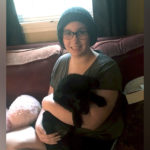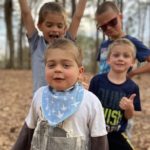Coping with hepatoblastoma: It didn’t take magic for John’s family to find answers
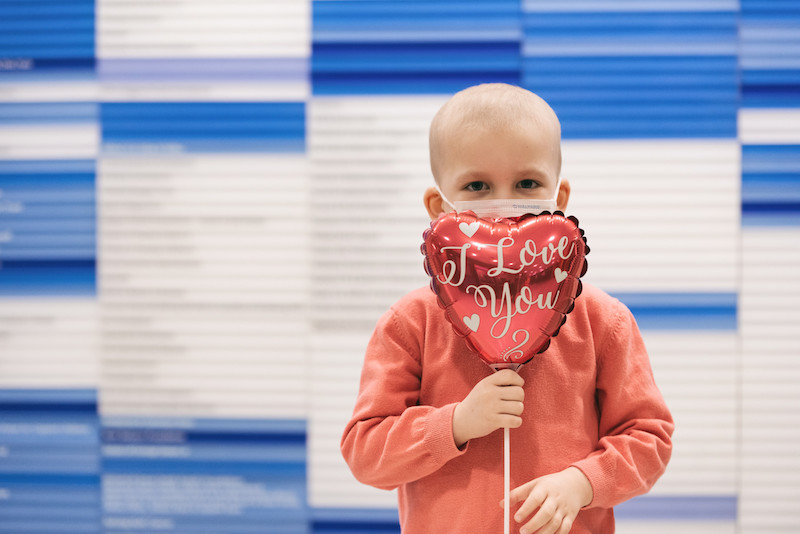
John Ogden considers himself a bit of a wizard. When his dad, Nick, says he wishes he had a boat, the 5-year-old points to a picture of one and casts a magic spell, declaring, “Moonshine, moonlight, make this sailboat come to life!”
“He’s a typical kid: inquisitive, imaginative, ornery, and fun,” says his mom, Julie.
But last year, John found himself faced with an epic battle — one that even a seasoned sorcerer couldn’t fight without a team of allies on his side.
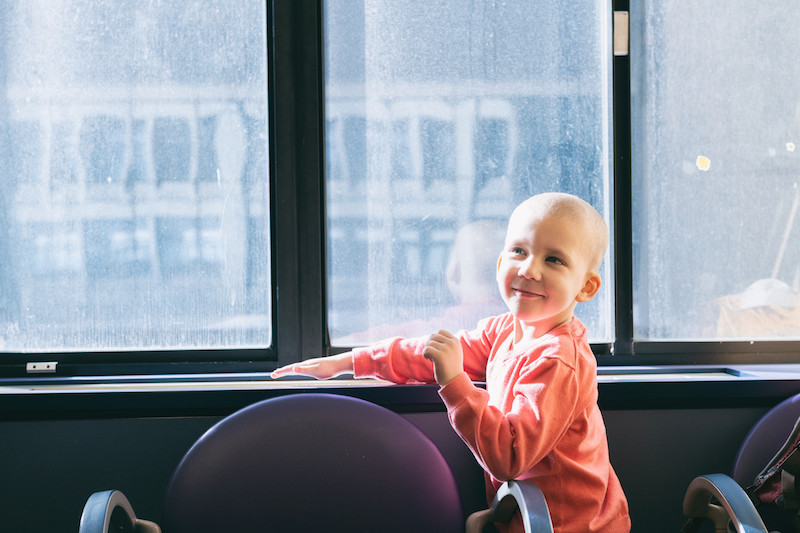
Navigating care — and a pandemic
The weekend before John’s annual well-child visit with his pediatrician last March, the COVID-19 pandemic hit. Like families around the world, the Ogdens, who were then temporarily living in Florida, were consumed with navigating the shutdown. Then, in early June, John started feeling sick.
“He was cranky, not sleeping well, vomiting, and started spiking high fevers,” Julie remembers. Even more strange, his skin took on an odd yellow hue. Julie made an appointment with his doctor. “I was concerned about COVID, because, of course, that was at the forefront of my mind,” she says.
But when John’s pediatrician took a look at him, she knew something other than COVID was responsible for his symptoms and recommended that Julie bring him to a children’s hospital two hours away.
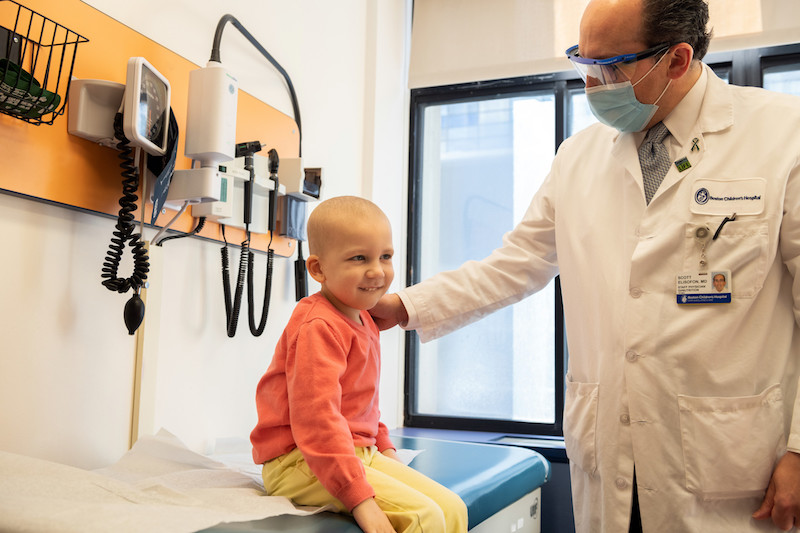
Relocating for hepatoblastoma care
By the end of the next day, the Ogdens had a startling answer: John had tumors “on every lobe of his liver,” says Julie. The official diagnosis, hepatoblastoma, is a rare type of liver cancer that typically affects young children. As John’s team in Florida quickly got him started on chemotherapy, Julie began researching the condition and its treatment.
One name kept coming up in her searches: Dr. Allison O’Neill, director of the Liver Tumor Center at Dana-Farber/Boston Children’s Cancer and Blood Disorders Center. John’s family, which is originally from Massachusetts, decided to return north to see Dr. O’Neill and her team. After two rounds of chemotherapy in Florida, both hospitals collaborated to ensure John would have seamless care.
Taking the next step
In Boston, John’s clinical team, which included Dr. O’Neill, as well as gastroenterologist Dr. Scott Elisofon and surgeon Dr. Alex Cuenca, ultimately determined that the best approach would involve a liver transplant, followed by several more rounds of chemotherapy.
It was a stressful time, filled with mixed emotions. “I didn’t think for a minute that he wouldn’t get better,” says Julie, who has two other young children as well. The Ogdens were touched by the support they received. “Even strangers have been so kind,” says Julie. “We’ve learned to accept help when it’s offered.”
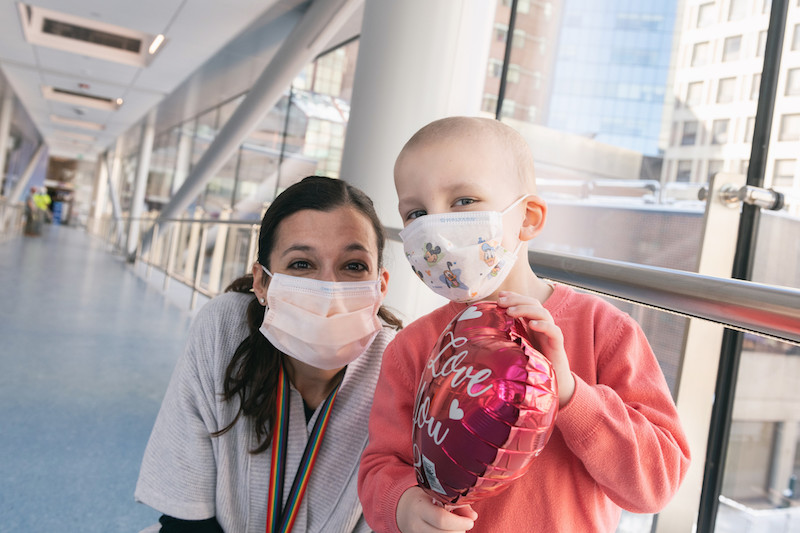
Getting the best care
Now several months after his full liver transplant and final round of chemotherapy treatment, John and his family have been advised to consider success in terms of one-year and three-year survival benchmarks. However, as it is right now, there is no evidence of tumor and all signs seem to point to John being cancer free.
“If there’s been a bright spot, it’s that he doesn’t really sense his own mortality,” says Julie. “While he doesn’t enjoy being poked and prodded at the doctor’s office, he’s usually too busy imagining a magical world filled with fairies and aliens to let it get him down.”
Meanwhile, his parents want other families to know that John’s experience doesn’t have to be just a fantasy for other kids. “Even though it was a scary situation, I felt confident every step of the way because we knew he was getting the best care,” says Julie. “Don’t feel like you can’t get the best for your child — you can.”
Learn more about the Liver Tumor Center.
Related Posts :
-

Meghan’s journey with UESL: Finding treatment for a rare form of liver cancer
In the spring of 2017, Meghan Tompkins and her parents, Danni and Michael, arrived at the Dana Farber/Boston Children’s ...
-

From Virginia to Boston for a kidney transplant: Joshy’s story
Joshy Buchheit is a lot like most 4-year-old boys. He loves playing in the mud, riding his scooter, and keeping ...
-

Trusting their instincts: Gary’s parents find help for immune-mediated hepatitis
For Mercedes Hollingsworth and Gary Walker, Jr., trusting their parental instincts helped get their son Gary Walker III — affectionately known ...
-

A true hero’s journey: How a team approach helped Wolfie overcome pancreatitis
Wolfgang, affectionately known as “Wolfie,” is a bright and energetic 7-year-old with a quick wit and a love for making ...


